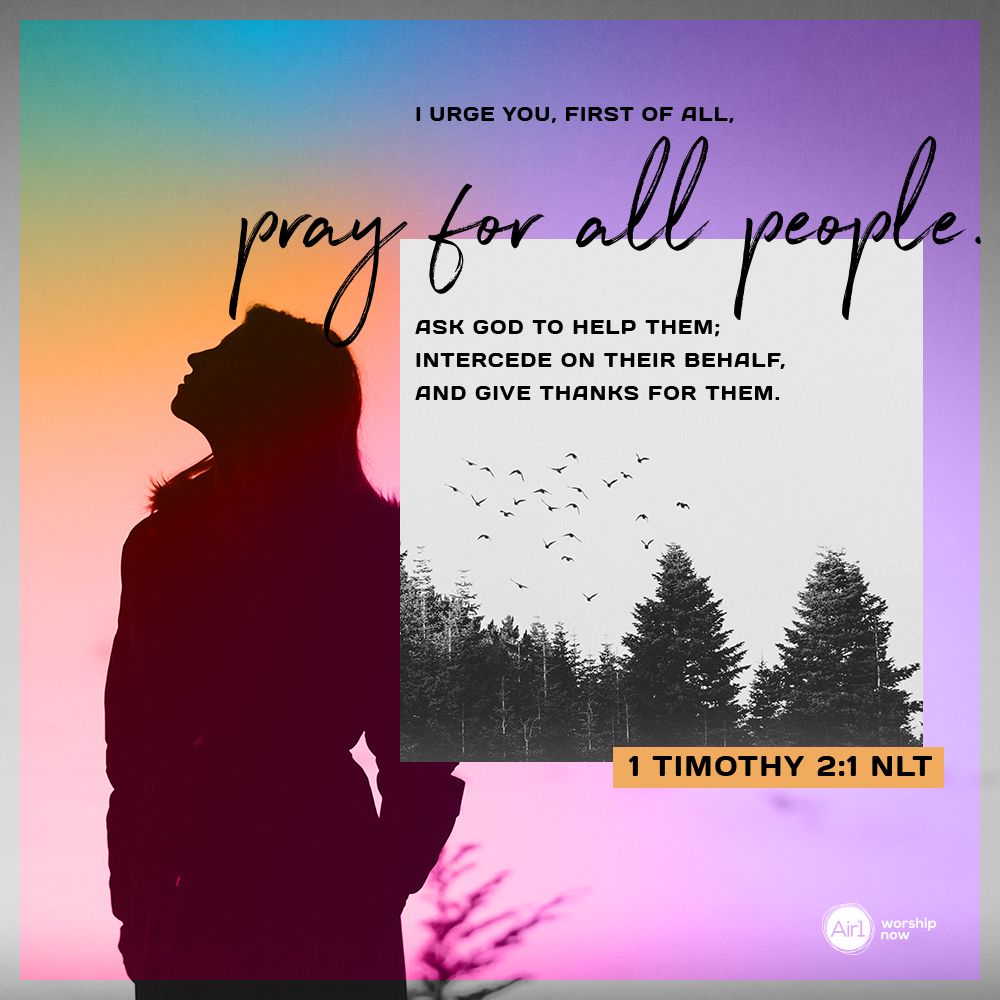THE SEED
I urge you, first of all, to pray for all people. Ask God to help them; intercede on their behalf, and give thanks for them.
Intercession is standing in gap for a person. It also means pleading on someone’s behalf. As believers, our prayer points should not be limited to our personal needs and that of our family members. Our prayers should be extended to those we know that are passing through difficult times. “I will remember you in prayers” has become our usual response to people but we don’t do it. One of the benefits of praying for others is that it brings spiritual growth and it also makes us more useful in the hands of God. Likewise, when we pray for others, it brings the power of God into manifestation in their lives. Like Apostle Peter, Herod kept him in prison to be killed just to bring excitement to the Jews. However, the church kept praying for him ceaselessly and God manifested himself by setting Peter free in a miraculous way. This was because some people interceded on his behalf. If we know anyone whose lifestyle is not pleasing the Lord, make a ceaseless intercession for such person rather than complaining, making jest, or gossiping about them, then the power of God will be made manifest for there’s always joy in Heaven over a repentant sinner. Praying for others is never a waste of time.
BIBLE READING: Acts 12 : 1-11
PRAYER: Father, grant me the grace to always intercede for others in Jesus name. Amen.
BIBEBE NIPA ADURA
IRUGBIN NAA
Ninu oun gbogbo, mo ro o lati gbadura fun gbogbo eniyan. Beere lọwọ Ọlọrun lati ran wọn lọwọ; gbadura fun wọn, ki o si dupẹ fun wọn. 1 Tímótì 2:1
Bibẹbẹ tunmo si diduro fun eniyan. Ó tún túmo sí bibe fún ẹnìyan. Gẹ́gẹ́ bí onígbàgbọ́, àwọn kókó àdúrà wa kò gbodo da lori àìní tiwa àti ti àwọn ìdílé wa nìkan. A gbọ́do gbàdúrà fun àwọn tá mo pe o n la àwọn àkókò ìṣòro kọjá. “Emi yoo ranti rẹ ninu adura” ,je oun ti a maa n so no opo igba fun eniyan ṣugbọn a ko ṣe. Ọkan ninu awọn anfani ti gbigbadura fun awọn ẹlomiran ni pe o nmu idagbasoke ti ẹmí ati pe o tun jẹ ki a wulo diẹ sii ni ọwọ Ọlọrun. Bakanna, nigba ti a ba gbadura fun awọn ẹlomiran, o mu agbara Ọlọrun wa si ifarahan ninu aye wọn. Bíi ti Àpọ́sítélì Pétérù, Hẹ́rọ́dù fi í sínú ewon kí wọ́n lè pa á kí wọ́n lè mú inú àwọn Júù dùn. Bí ó ti wù kí ó rí, ijo Ọlorun ń gbàdúrà fún un láìsimi, Ọlọ́run sì fi ara re hàn nípa dídá Peteru síle lọ́nà iyanu. Eleyi seese nitori pe awon ẹnìyan gbàdúrà fun n. Bí a bá mọ ẹnikẹ́ni tí ìgbésí ayé re kò tẹ́ Olúwa lọ́rùn, ṣe àbẹ̀tẹ́lẹ̀ aláìdábọ̀ fún irú ẹni bẹ́ẹ̀ dípò kíkẹ́dùn, ṣíṣe yẹ̀yẹ́, tàbí sọ̀rọ̀ òfófó nípa wọn, nígbà náà agbára Ọlọ́run yóò hàn kedere nítorí ayọ̀ ń bẹ ní Ọ̀run nígbà gbogbo lórí ẹlẹ́ṣe tí ó ronú pìwà dà. . Gbígbàdúrà fún àwọn ẹlòmíì kì í ṣe ifa àkókò ṣòfò láé.
BIBELI KIKA: Iṣe Aposteli 12:1-11
ADURA: Baba, fun mi ni oore-ọfẹ lati gbadura nigbagbogbo fun awọn miiran ni orukọ Jesu. Amin.
